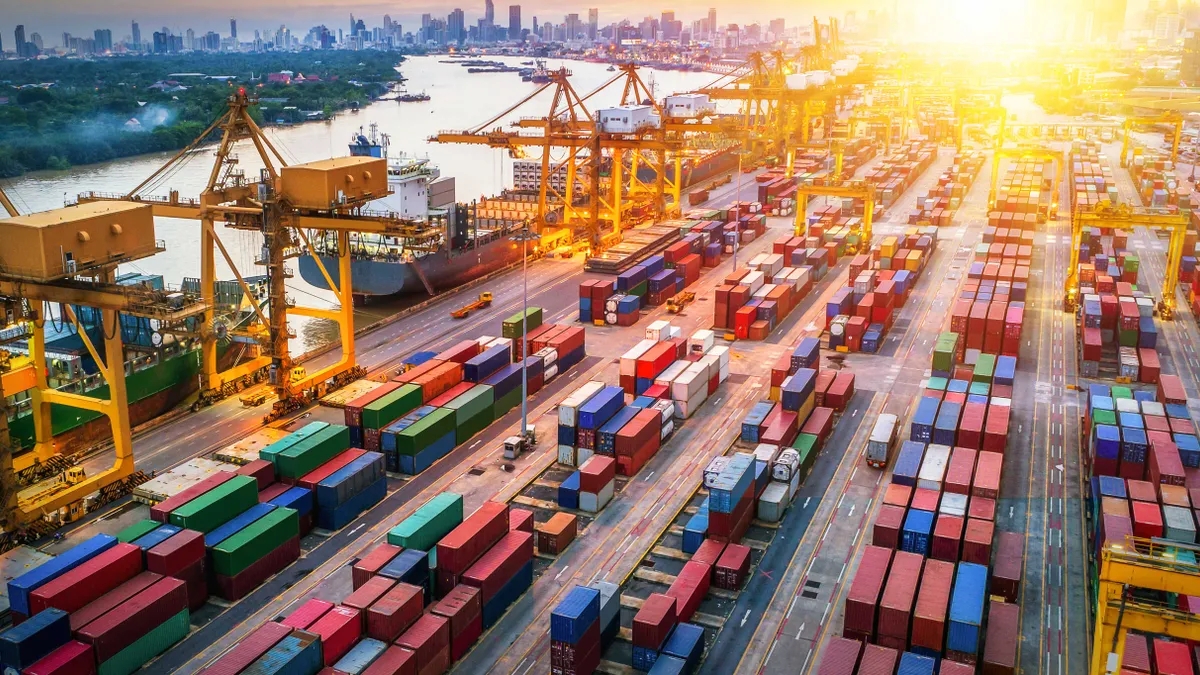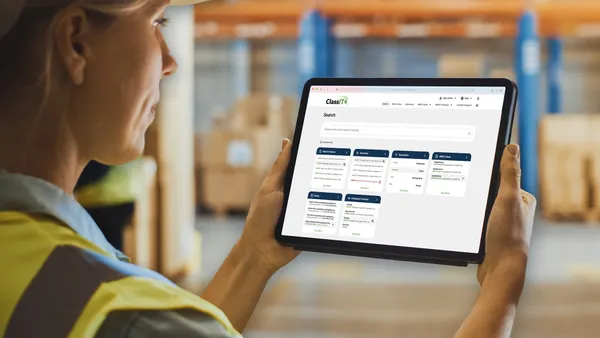Dive Brief:
- Supply chains adjusting to the shifting impacts of the current pandemic are currently in a "pre-new normal" stage of recovery and will have to make important changes to sourcing, transportation and warehousing networks during this phase to survive in a post-coronavirus world, according to a DHL whitepaper released Thursday.
- The paper notes that as countries, and regions within countries, begin to reopen at different rates, ramping up the supply chain to pre-pandemic levels all at once will be impossible. Therefore, "Achieving transparency of the entire supply chain will be key as soon as possible," Klaus Dohrmann, VP for sector development engineering, manufacturing and energy for DHL Customer Solutions and Innovation, told Supply Chain Dive via email.
- Transparency, investing in digital transformation, and identifying alternate supply and distribution channels are key to shoring up organizations during this "pre-new normal" phase, according to the report. Once those efforts are in place and the pandemic begins to resolve, firms should think about more long term geographic or business model realignments.
Dive Insight:
According to DHL's report, the "pre-new normal" stage can be "measured in months," as changes at the technological or business practice level are more flexible. However, on-the-ground moves, such as shifting sourcing or distribution geographies, will take longer. "Diversification often requires the development of completely new supply chain networks and infrastructure," the report reads.
"Knowing the supply chains, all suppliers down to tier [three] and even alternative suppliers is the pre-requisite for any long-term decisions [toward] the new normal. This includes new transportation and warehouse network set-ups, increasing supply chain resilience and efficiency," Dohrmann said.
Assessing supplier health, alternate vendors and investing in communications tools during the pandemic have helped supply chains, and their procurement teams, weather disruptions thus far, according to experts.
For transportation, supply chain executives will need to "Re-assess the trade-off between lead-time vs. transport cost: existing assumptions may no longer hold," the report said.
"Reliable supply chains are at least equal to our ‘need for speed’, having strong partnerships is better than having customer-client relations, and shared transparency is a key for successful supply chains," Matthias Braun, head of Digitalization and Concept Development at Volkswagen Group Logistics, said in the report.
When it comes to warehousing networks, the report recommends supply chain managers take a thorough look at where inventory is being stored, in what quantities and where buffer stock will be needed most. The facilities' proximity to suppliers and customers, their typical demand levels, and their level or responsiveness during a disruption can influence this decision.
Ensuring a "pre-new normal" inventory balance will be key going forward as consumers make higher volume, but less frequent, trips to stores, or choose to shop online under social distancing guidelines, the report found — citing the ongoing impact of the "bullwhip effect."
The challenge with the shift from normal brick-and-mortar store-buying patterns to skyrocketing e-commerce adoption is "it includes channel conflicts as well as a fundamental analysis of customer expectations and cost-to-serve," Dorhmann said. "Moving into e-commerce models on very short notice during the crisis, did not allow for such a proper preparation and the implementation of the right ... cost, fulfillment or distribution models."
Choosing the right, or even altogether new partners in the coming months can help set up an e-commerce ecosystem for success, he continued.
In addition, shifting away from just-in-time inventory planning will be key, the report noted, not just for manufacturing but for grocery, consumer packaged goods and other industries.
In the end, "resilience is cost-neutral," the report reads. "There might be a cost, to be sure, but it is often well worth paying for the resulting added protection and peace of mind."














